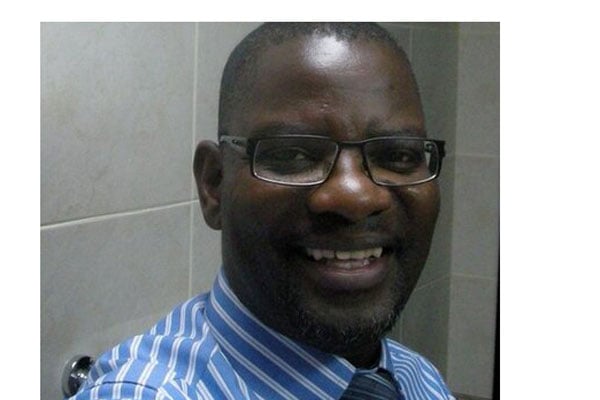Covid-19 still kills but let’s not have lockdowns in 2022

Author: Musaazi Namiti. PHOTO/FILE
What you need to know:
- They sold off their earthly possessions to buy food; others simply starved. Some Ugandans abandoned jobs for which they got professional training just so they could do anything that could put food on the table. Others closed small businesses that provided a livelihood and went to the Middle East to start a new life.
For many Ugandans who live from hand to mouth — they account for the vast majority of the population — lockdowns have been a nightmare of unimaginable proportions. They were eking out a living, but lockdowns meant they could not do this.
They sold off their earthly possessions to buy food; others simply starved. Some Ugandans abandoned jobs for which they got professional training just so they could do anything that could put food on the table. Others closed small businesses that provided a livelihood and went to the Middle East to start a new life.
I read stories of people in the entertainment industry who were making a decent living before the pandemic struck begging the government to come to their rescue.
The problem is that they were appealing for help from individuals who do not care what happens to Ugandans and have actually said publicly they are not in power to serve Ugandans but to cater to their personal interests and serve their families.
As long as those individuals remain in power and are enjoying the trappings of power, then everything is fine.
A government led by people who care about ordinary people does not have to wait for a pandemic to show that it cares. It can, for example, tax people and use their money to provide healthcare. Yet for more than 30 years, the government in power has not even completed 50 per cent of this task. The best evidence is that government officials often go to private hospitals when they are seriously ill.
The government can and should provide security for all people, but we saw how dozens of innocent, elderly people in Masaka were massacred when tens of thousands of soldiers were chillaxing in their barracks, leading to allegations that the government was complicit in the killings.
We also know how it is next to impossible to call police at night when in danger and get help from them.
They are more likely to respond when you are a prominent politician or when you are close to people in power.
Consequently, when the government insists it imposed lockdowns to save lives of Ugandans, you wonder whether it should be taken seriously and whether Ugandans should have this nonsense again should another wave hit.
The first lockdown, like the second, was imposed to ostensibly check the spread of Covid-19, but it had a lot to do with politics. It enabled the group that is hogging power to restrict the movement of political opponents, to prevent them from speaking to the disenchanted masses.
Covid-19 has also been used to reap dividends from the hapless masses. The general consensus is that quite a few Ugandans, especially those who are close to people in power, have become fabulously rich thanks to Covid-19.
I witnessed this first hand at Entebbe International Airport recently when I was forced to pay for a Covid-19 test yet I still had valid results. A soldier at the airport pleaded with people who took my money to return it, but they refused.
He referred me to a large woman who is in charge of airport security hoping that she might help me. She did not.
Covid-19 is very much around and is still killing people. But it should not make us profiteers. We should not impose lockdowns recommended by people who live in comfort and have precious little to worry about. Let us get as many people as possible vaccinated and allow them to fend for themselves. They only can do that; the government cannot provide for them.
Mr Namiti is a journalist and former Al Jazeera digital editor in charge of the Africa desk
[email protected] @kazbuk




